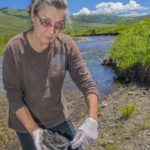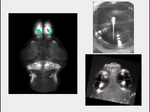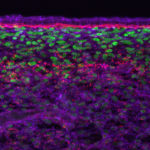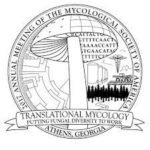Among the 30 proposals selected for the 2018 Community Science Program (CSP) of the U.S. Department of Energy Joint Genome Institute (DOE JGI) is one by Jillian Banfield, a UC Berkeley professor and Berkeley Lab faculty scientist affiliated with the Environmental Genomics & System Biology (EGSB) Division. Banfield will study the impact of soil microbial communities along the East River in Colorado on the quality of water leaving the watershed. The research is part of a major DOE project to investigate how terrestrial systems respond to perturbations such as droughts, floods, and early snowmelt. The full list of accepted proposals can be viewed here.
UCB/UIUC Project to Improve Photosynthesis Receives Ongoing Support
A University of Illinois Urbana-Champaign research initiative on which Biosciences’ Krishna Niyogi has been a longtime collaborator received a $45 million, five-year reinvestment to continue efforts to re-engineer photosynthesis in staple crops order to sustainably increase yields worldwide. The new round of funding for Realizing Increased Photosynthetic Efficiency (RIPE) comes from the Bill & Melinda Gates Foundation, the Foundation for Food and Agriculture Research, and the U.K. Department for International Development. Niyogi, a faculty scientist in Molecular Biophysics and Integrative Bioimaging (MBIB) and chair of the Department of Plant and Microbial Biology at UC Berkeley, has been involved with RIPE since its inception. His research related to the project focuses on relaxing the protective mechanisms plants have developed to avoid damage to leaves from high-intensity light. Read more from UC Berkeley College of Natural Resources.
DARPA Awards $21.6M to Develop Optogenetic ‘Read-Write’ Neural Interface
Ehud Isacoff of the Molecular Biophysics and Integrated Bioimaging (MBIB) Division is the project lead on a $21.6 million grant awarded to UC Berkeley as part of the Defense Advanced Research Projects Agency’s (DARPA’s) Neural Engineering System Design program. The team led by Isacoff, director of the Helen Wills Neuroscience Institute at UC Berkeley, aims to develop a novel brain-machine interface that uses light to monitor and modulate the activity of thousands to millions of individual neurons in the cerebral cortex.
‘Tug of War’ Among Skin Cells Key to Development of Chicken Feathers
Sanjay Kumar, a Berkeley Lab faculty scientist in Biological Systems and Engineering (BSE), and Elena Kassianidou, a graduate student working in his lab, are co-authors on a UC Berkeley-led study published in the journal Science which for the first time linked mechanical forces acting on skin cells in a developing organism to the activation of specific genes that make the cells differentiate into more specialized types, such feathers. The researchers grew skin taken from week-old chicken eggs on artificial substrates generated by Kumar and Kassianidou to mimic the stiffness of tissues that underlie the skin in the bird. The work could pave the way to growing artificial skin for grafts that looks like normal human skin with proper spacing of hair follicles and sweat pores. Read more from the UC Berkeley News Center.
Glass Named Fellow of the Mycological Society of America
N. Louise Glass, director of the Environmental Genomics and Systems Biology Division, is being named a fellow of the Mycological Society of America (MSA) at their annual meeting being held this week in Athens, GA. MSA Fellows recognize mid-career members and also MSA volunteers. Glass is being honored as an outstanding mycologist who has served the MSA in several capacities, including as a member of both the Society’s leadership body and the Editorial Board of Mycologia, the official journal of the MSA. Read more in the MSA meeting announcement.
- « Previous Page
- 1
- …
- 10
- 11
- 12
- 13
- 14
- …
- 17
- Next Page »
Was this page useful?








